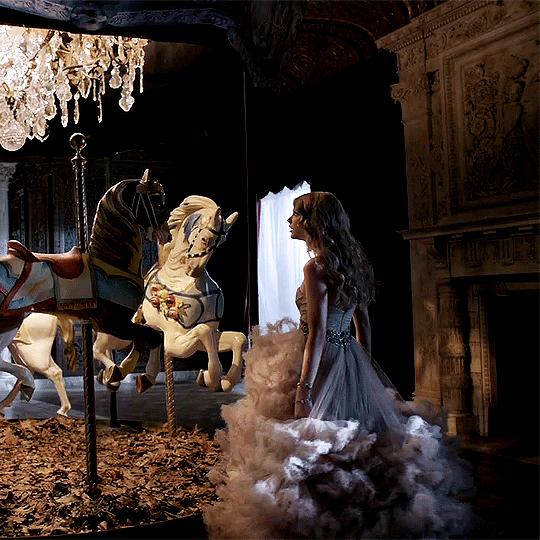Writer and Fandom Blog etc etc
Last active 4 hours ago
Don't wanna be here? Send us removal request.
Text

late night Kore painting, now time for death stranding sksksk
301 notes
·
View notes
Text
"I'm just a girl", "girl math", "girl dinner", "divine feminine energy", "bimbocore", "clean girl", "girl's girl", "girlfriend brain" SHUT UPPP!!! SHUTT THE FUCKKKK UPPPPPP !!!!

95K notes
·
View notes
Text
when you download a pdf and it's called like 1328723486basdf12.pdf but then you gently rename it to what it's supposed to be. that's forming a bond with a hurt and wild mythological creature and reminding it who it is.
185K notes
·
View notes
Text
"In the beginning the live-action remakes were releasing 60 years after the originals. Then 30 years. Then 15 years. Netflix just announced that they're considering a Kpop Demon Hunters remake a month after that movie released. Marshal, within this decade we may be looking at a simultaneous release between an animated movie and its live-action remake."

3K notes
·
View notes
Text
My brother had the idea, I had to do it

14K notes
·
View notes
Text


Star Wars: Episode V – The Empire Strikes Back (1980)
1K notes
·
View notes
Text

when you "accidentally" cut off your baby's hand and now the force ghost wife is mad at you. what's a cyborg to do
more of these: feral ghost padmé
(i'd love to make more of these but that bitch is so hard to draw. by bitch i mean vader. this is me trying)
717 notes
·
View notes
Text



"hello, darling, please do not shoot our son 🩵" "our WHAT"
basically this is how cyborg learns he is cyborg dad (and that his lovely wife is now a force ghost)
more of these: feral ghost padmé
(ill promise ill work on dilf au and study after this!!! hngggg)
238 notes
·
View notes
Text
The Chosen, S5E8 - The Upper Room Part II
Buckle up, babes, we’re going in...to the depths of Gethsemane. Because I neeeeed to talk about it and the numerous layers within this fantastic episode. I hope you're ready...this one's a doozy!
When Jesus is done initiating the new covenant of His body and blood and sharing it with His disciples, He leads them to Gethsemane. Gethsemane means ‘oil press,’ which, beyond the obvious, holds an incredible depth of meaning for Christ’s sacrifice. It generally takes around 3 years for an olive tree to produce olives that can be crushed for their oil, which parallels Jesus’ 3-year ministry before He’s crushed for our iniquities (Isaiah 53:5). Once olive trees reach maturity, they continue producing their fruit for years, much like Jesus’ sacrifice has done and continues to do. And like us, believers who require consistent connection to the Vine for our maintenance, the trees require care and upkeep to make sure they stay healthy and produce optimal fruit.
In ancient times, there were two steps to oil pressing: 1. crushing the olives using a crushing stone; and 2. pressing the crushed olives with force, extracting the precious oil. (This was wonderfully depicted in s4e4, entitled Calm Before, when Jesus, in emotional distress, happens upon Mary Magdalene, Tamar, and Zebedee pressing olives to extract the oil to sell in order to financially support Jesus’ ministry.) Individuals used a wooden beam as a lever to press the olives because it exerted a large force over a small distance. This represents the patibulum of the cross Jesus carried, which weighed—pressed and crushed—Him down as it exerted its force against Him, both as He carried it to Golgotha and as His arms were stretched across it.
Olive juice contains both water and oil, and eventually the desired product, the oil, separates from the water, allowing it to be extracted. After giving up His spirit on the cross, “one of the soldiers pierced Jesus’ side with a spear, bringing a sudden flow of blood and water” (John 19:34), but it’s His blood—of the new covenant He earlier established—that’s the “desired” product, His blood that is the atoning sacrifice that makes all the difference in the world.
In biblical times, olive oil was used for many things: to keep lamps burning in the tabernacle (Ex. 27:20-21; Lev. 24:1-4); to heal wounds (Is. 1:6); and to anoint kings (1 Sam. 10:1, 16:13), among other things. It also symbolizes blessing, God’s abundance and favor, and the presence of the Holy Spirit. Messiah also means “the anointed one,” and Jesus is the anointed King.
Gethsemane is a garden, and throughout the Bible, gardens are the archetypal place where God meets with His people (Eden – God walks with Adam and Eve; Solomon’s temple – built full of garden imagery, it’s the place God’s chosen people meet with and make reparations to Him; Garden of Gethsemane – where Jesus often goes to pray and commune with His Father; and the New Earth foretold of in Revelation – a re-creation of Eden with the reappearance of the same Tree of Life where the bride of Christ is forever with Him). It’s not happenstance that Jesus shares His greatest sorrow with the Father—and garners the strength He needs from Him—in a garden, the historical Meeting Place between God and His people.
And all of this symbolism just with Jesus entering Gethsemane to pray before His Passion.
When Jesus leads Peter, James, and John into the Garden and stumbles, He tells them of the depth of His sorrow. They immediately think to get a doctor. Jesus refuses them, and instead says, “The Great Physician Himself will minister to Me.” The first instance of God being called Jehovah-Rapha, meaning ‘the Lord Who heals,’ is in Exodus 15:26. After the parting of the Red Sea, Moses leads Israel into the desert for three days (sounds familiar) without water. They arrive at the undrinkable waters of Marah, which means bitter (also familiar). God provides a way (again, familiar) to change the bitter water into drinkable sustenance and says of Himself, “I am the Lord, who heals you,” or Jehovah-Rapha. Jesus calls on this most familiar aspect of His Father’s character to help Him through His sorrow.
Jesus then asks the three to “be near Me.” When Big James says, “we will,” a slight look of relief, gratefulness even, coupled with pain (likely because He knows they intend to but won’t), crosses Jesus’ face. He then says He’s going to go further into the garden to pray (again reminiscent of the Garden of Eden, walking with God; and the future of Revelation, the Garden of God).
Jesus enters the darkest part of the garden and touches one of the olive branches (hello, pain!). Upon seeing a large boulder, He falls down before it and states, “this is the place.” The oil press. “I’m here. I’m ready,” He cries, and though everything about this visual representation of the passages of Scripture and Jesus’ own words illustrate how not ready He is, this entire exchange between Him and God is about how He’s ready to be willing to do what God asks of Him, however much He desperately wants it not to be what He knows is coming.
He collapses over the rock, grasping at it, and weeping, and I can’t help thinking of that boulder as symbolizing God the Father as The Rock. Throughout the Old Testament, rocks and rocky crags were places that God’s people hid from their enemies. David hid from Saul in caves and rocky places, and rocky areas were used as fortresses. David often called God “the rock of my salvation,” and in 1 Sam. 2, Hannah prays “there is no Rock like our God,” acknowledging the security, stability, and protection of the Lord. Jesus here is clinging and crying on a physical symbol of God as the Rock as He pours His aching heart out to Him.
The boulder He cries upon can also be seen as an altar: the Lamb of God Who takes away the sins of the world upon a stone memorial. Stone altars throughout the OT were built at the instruction of God—He’d command His people to build a structure to permanently mark a place where encounters with Him occurred. These were to be memorials for His people, indicating locations where God had manifested His covenant to them or where sacrifices were offered. This visual of Jesus—the new covenant, the sacrifice that would cleanse us and make us one with God again—upon the altar holds historically ancient and prophetic meaning.
Jesus hears the sound of an ax chopping wood and follows it to see Abraham crying as he’s chopping wood, preparing to sacrifice his own son. He sees a father, readying to sacrifice his son, crying. This vision—a memory for Jesus—strengthens Him, as Isaac calls out for his Abba, just as Jesus has/will continue to do. Issac offers to carry the wood for the sacrifice on his back for his father. Resoluteness comes over Jesus’ face as He sees the innocent willingness of Isaac to help and obey his abba. And Jesus knows He must do the same: the Truly Innocent being willing to carry the wood—the crossbeam—on His back to the place of the sacrifice while calling out to His Abba.
Genesis 22: 3 tells us that once enough wood was cut, Abraham and Isaac traveled for three days (sounds familiar) to the place where the sacrifice would occur. On this third day, Issac asked Abraham where the sacrificial lamb was. Abraham responded that God would provide the lamb (vs. 8). In Hebrew, what Abraham actually says is “God will provide Himself (as) the lamb.” God will provide Himself. As Jesus recalls, “We spared you [Isaac],” and the vision reminds Jesus that no other human can do what He will do, and He Himself, as promised, would be provided as the ultimate sacrifice of the covenant for the people of God.
Jesus asks God to remove the cup from Him before falling at the Rock/altar again and saying, “But not my will but Yours be done.” “I trust you, Abba,” He states, even as His heart is breaking and He knows the answer is no, this cup will not be removed from Him.
Upon finding the three disciples sleeping and entreating them to stay alert and pray, He tells them (and Himself?) that the spirit is willing but the flesh is weak, and reminds them—seemingly innocuously—about the “helper,” the Spirit, He’s promised to send to them.
He returns to kneel again at the Rock/altar, reminding Himself in prayer that “Your will be done.” He then senses another message from the Father, follows the creeping mist along the ground, and finds Himself in the valley of dry bones (Ezekiel 37). The dry bones, remains of those long dead, far past the point of resuscitation, represent not only Israel’s hopeless condition in exile during Ezekiel’s time, but all followers’ exile into sin, now, from where He is in Gethsemane, and onward throughout time.
Ezekiel 37: 12-14 says, “Therefore, prophesy and say to them, ‘This is what the Sovereign Lord says: O my people, I am going to open your graves [not just the physical graves, but the spiritual one] and bring you up from them; I will bring you back to the land of Israel [the Promised Land, physically in ancient Israel, and spiritually in eternity]. Then you, my people, will know that I am the Lord, when I open your graves and bring you up from them. I will put my Spirit in you [as Jesus reminded the three moments ago] and you will [spiritually] live [forever], and I will settle you in your own land [Heaven]. Then you will know that I the Lord have spoken, and I have done it [more immediately, for the remnant of Ezekiel’s day, and now and throughout the rest of eternity future, through Jesus’ sacrifice], declares the Lord.’”
In His vision, Jesus, in the valley of dry bones, is surrounded by death—a dark night of the soul, a dry and weary land, the valley of the shadow of death. He asks Ezekiel, “Tell me, son of man, can these bones live?,” just as He did when Ezekiel lived and prophesied (Ez. 37:3). Ezekiel answers, Oh, Lord. Only you know (vs. 3).” And Jesus cries. Because He does know. He knows what He must do to make all those dry bones, long dead in sin, live again. Ezekiel nods at Jesus in affirmation: this is the way.
(Side note: the title “Son of man,” used throughout Ezekiel, for Ezekiel, simply means ‘a human.’ But in Daniel 7:13-14, the prophet has a vision about a deity, the Messiah, “one like a son of man, coming with the clouds of heaven. He approached the Ancient of Days [a title for God] and was led into his presence. He was given authority, glory, and sovereign power; all peoples, nations, and men of every language worshiped him. His dominion is an everlasting dominion that will not pass away, and his kingdom is one that will never be destroyed.” While signifying a human being, the title also refers to one of divine nature and of someone fulling Daniel’s prophecy, and ‘Son of Man’ was the title by which Jesus most commonly referred to Himself, indicating He was both human and divine, as well as the ultimate fulfillment of Daniel’s prophecy.)
Following this encounter with Ezekiel, Jesus returns once more to the disciples and again finds them sleeping. He looks upon them with a sigh of disappointment, then, upon a second look, sees them as children. It’s after the vivid reminder of the valley of dry bones, of God Himself opening up the graves and putting His Spirit in them, of Him having been the one to do it—to restore them, revive them, save them, return them to their home—return them to Him—that He sees them as kids. Innocent and unable to do this impossible task on their own. They need Him to do it; they [we] cannot do it ourselves. Jesus looks on them with compassion, understanding, and love, and, with a small smile of understanding and a knowing look towards heaven, Jesus returns to His prayerful solitude.
He stands alone in the middle of the Garden of the Olive Press and touches an olive on a small branch. Knowing what’s to come, He goes once more to the Rock/altar and falls upon it. He weeps, sweating profusely, full of sorrow at the will of the Father and the cup He wants to forego.
It’s at this moment, when His anguish is the deepest, that He suddenly feels a hand on his head, and He looks up into the face of His earthly father. Joseph, a welcome sight since he’s been gone from Jesus’ life for years at this point, also pointedly and profoundly represents His heavenly Father. Joseph gives Him a small smile before Jesus begins sobbing in earnest, and He falls into His father’s arms. Joseph wipes the sweat from Jesus’ brow, the last gentle touch the Savior will know until He’s resurrected, and He looks at His father and says, “thank you,” His voice heavy with gratitude for both the vision of Joseph and who he represents. Joseph looks intently at Jesus and purposefully states, “I’ll be waiting for You.” Jesus weeps again because He knows what this means. Both of His fathers will be waiting. On the other side. In Glory. There’s something better after what comes next. Something He knows. Someone He knows. And He knows what He must do to see him (them) again.
And then Joseph is gone, and Jesus is alone again. He steadfastly inhales, accepting the will of His Father, resolutely stands up, and walks back to the disciples, ready as He’ll ever be to face what comes next.
I have so very many things to say about the parts of this episode I didn't delve into here, but the depth of Gethsemane alone is an essay. So thanks for coming to my TedTalk <3
5 notes
·
View notes
Text

Finally, an official announcement date for the return of Rekindled! Assuming neither Canada or the US goes up in flames within the next month and a half, we'll be back with our bi-weekly updates starting on September 20th! I know it's already been a long wait and we've still got over a month to go, but we've got some pretty cool stuff in the works that will hopefully be worth the wait !!! Here's to the second half of S1 💖
320 notes
·
View notes
Text
honestly it’s impossible to talk about feminism anymore on this site because a woman will casually make a post about how men treat women terribly and how much they suck and everybody in the notes is like ALL MEN? EVEN TRANS MEN? EVEN GAY MEN? EVEN MEN OF COLOR? EVEN DISABLED MEN? WHAT IF A MAN IS POOR? WHAT IF A MAN IS NICE? TRANS MEN GET MISGENDERED AS WOMEN SO THEY DONT COUNT RIGHT? GAY MEN ARE FEMININE SOMETIMES SO THEY DONT COUNT RIGHT? EAST ASIAN MEN GET FORCEFULLY FEMINIZED SO THEY DONT COUNT RIGHT? DID YOU KNOW WOMEN CAN BE RACIST
4K notes
·
View notes
Text
Both Aang AND Sokka use Katara as a replacement for their grief.




Katara's not told any of this, by the way. She's just supposed to feel bad for not living up to those expectations while not being given the same support.
Which is why I have no patience for people criticizing Katara for prioritizing her grief over theirs in The Southern Raiders.
243 notes
·
View notes
Text
whoever decided to turn daisy bell into a spooky dookie creepypasta song is fucking evil. that computer was brave enough to sing us a delightful little song and you do THIS to him? thats hatsune mikus grandpa dude. fuck you
160K notes
·
View notes









